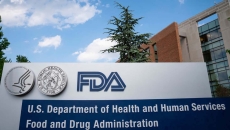digital health regulation
HIMSS24
Gaurav Sharma, market innovator and global client partner at Cognizant, discusses the balance between accelerating healthcare's use of technology with putting regulations in place to protect patients.
David Rosen, a partner and public policy lawyer at Foley & Lardner, discusses the agency's recently wrapped Software Precertification Pilot Program and what it means for the future of digital health regulation.
Industry regulatory leaders outline the best approaches for digital health companies looking to make sense of FDA's long-in-the-tooth enforcement discretion guidelines.
As the agency's workload swells with the weight of a public health emergency, digital health companies on a timeline should consider whether their products truly warrant a regulatory submission, writes Epstein Becker & Green's Bradley Merrill Thompson.
More expertise will be necessary if the regulator is to keep up with the constant evolution of real-world evidence, privacy and other data-driven challenges, Dr. Hahn said.
Although still a work in progress, the new center will reportedly help coordinate digital health projects within the agency while providing expertise to external stakeholders.
Epstein Becker & Green's Bradley Merrill Thompson describes the agency's current trajectory for regulation of patient-facing and provider-facing telehealth products that incorporate AI.
A new guidance from the U.S. regulator relaxes a handful of requirements for these digital health devices, and clarifies the agency's long-term enforcement policy for low-risk wellness products.
Dr. Yuri Maricich, chief medical officer at Pear Therapeutics, speaks on his company's experience bringing a digital therapeutic product through the regulator's experimental program for health software.
The Auto Ejection Fraction Tool and the Auto Bladder Volume Tool both employed AI to help Butterfly iQ users more easily evaluate the patient's condition.

